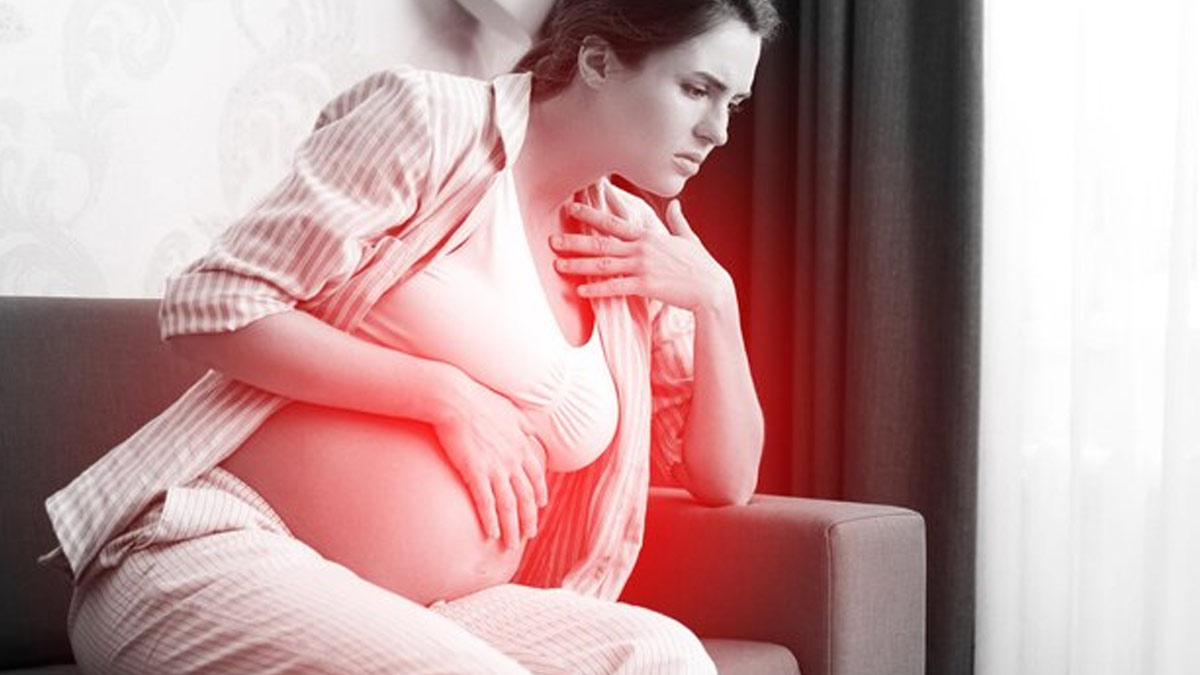
Were you aware that breast cancer stands as the most prevalent cancer worldwide? This condition originates within the breast tissue, with potential onset in either one or both breasts. It starts with irregular cell proliferation in the milk ducts or lobules responsible for milk production. But what implications does this diagnosis have for a pregnant woman and her baby? We spoke to our expert Dr Rashmi Shukla, Senior Consultant - Radiation Oncology, Max Super Speciality Hospital, Patparganj, Delhi, who explained treatment strategy for pregnant mothers and its impact on the foetus.
Table of Content:-

According to the Reviews in Obstetrics and Gynecology, Pregnancy-Associated Breast Cancer (PABC) refers to breast cancer diagnosed during pregnancy or within the first year after childbirth. It affects roughly 1 in 3000 pregnant women and ranks as the second most prevalent cancer during pregnancy. Women diagnosed with PABC typically fall within the age range of 32-38 years. Furthermore, just 6.5% of breast cancer instances are diagnosed in women under 40.
Treatment Strategy During Pregnancy

When a pregnant woman is diagnosed with breast cancer, the treatment strategy must be carefully balanced to protect both the mother and the foetus. According to the American Cancer Society (ACS), if breast cancer is diagnosed during pregnancy, the treatment plan will be determined by factors, such as tumour size, location, extent of spread, gestational stage, overall health, and individual preferences.
First Trimester
During the first trimester, chemotherapy is generally avoided due to the high risk of congenital abnormalities and surgical interventions, such as lumpectomy or mastectomy, are considered safer.
Second and Third Trimesters
“As pregnancy progresses into the second and third trimesters, chemotherapy can be administered with a reduced risk of teratogenic effects. Agents like anthracyclines (doxorubicin) are preferred due to their relatively safer profiles,” said Dr Shukla.
According to a 2012 study tracking children exposed to chemotherapy in the womb for over 18 years, none exhibited signs of cancer or significant abnormalities.
Dr Shukla added, “Radiation therapy, however, is typically avoided during pregnancy due to the potential harm to the foetus and is usually postponed until after delivery. Regular foetal monitoring through ultrasounds and other assessments is critical to ensure the baby’s well-being during the mother’s treatment.”
Also Read: Second Trimester Of Pregnancy: Expert Explains Symptoms, Diet, and Exercise
Impact on Children

“Studies indicate that children born to mothers who undergo cancer treatment during pregnancy generally fare well without significant long-term health or developmental issues,” said Dr Shukla.
The decision on the timing of delivery is also crucial; in some instances, early delivery might be necessary if delaying cancer treatment poses a risk to the mother’s health. Such decisions are made by a multidisciplinary team to optimise outcomes for both mother and child.
According to the National Cancer Institute, during pregnancy, breastfeeding, or postpartum, women typically experience increased breast size, tenderness, or lumpiness due to hormonal fluctuations. These changes, attributed to pregnancy-related hormonal shifts, may obscure small lumps, making detection challenging. Also, breast density may increase, complicating breast cancer detection via mammography. Consequently, delayed diagnosis is common among women experiencing these breast changes, often resulting in the discovery of breast cancer at later stages.
Also Read: Balancing Parenthood And Breast Cancer: Expert Explains Strategies For Success
Advances in Treatment
Advances in cancer treatment during pregnancy have shown that with careful planning and close monitoring, both the mother’s and the baby’s health can be effectively safeguarded.
According to ACS, women who have recently given birth and are undergoing breast cancer treatment are advised to discontinue or avoid breastfeeding. This precaution is necessary because chemotherapy, hormone therapy, and targeted therapy medications can potentially enter breast milk and affect the baby.
[Disclaimer: This article contains information provided by an expert and is for informational purposes only. Hence, we advise you to consult your own professional if you are dealing with any health issues to get the necessary treatment.]
Also watch this video
How we keep this article up to date:
We work with experts and keep a close eye on the latest in health and wellness. Whenever there is a new research or helpful information, we update our articles with accurate and useful advice.
Current Version